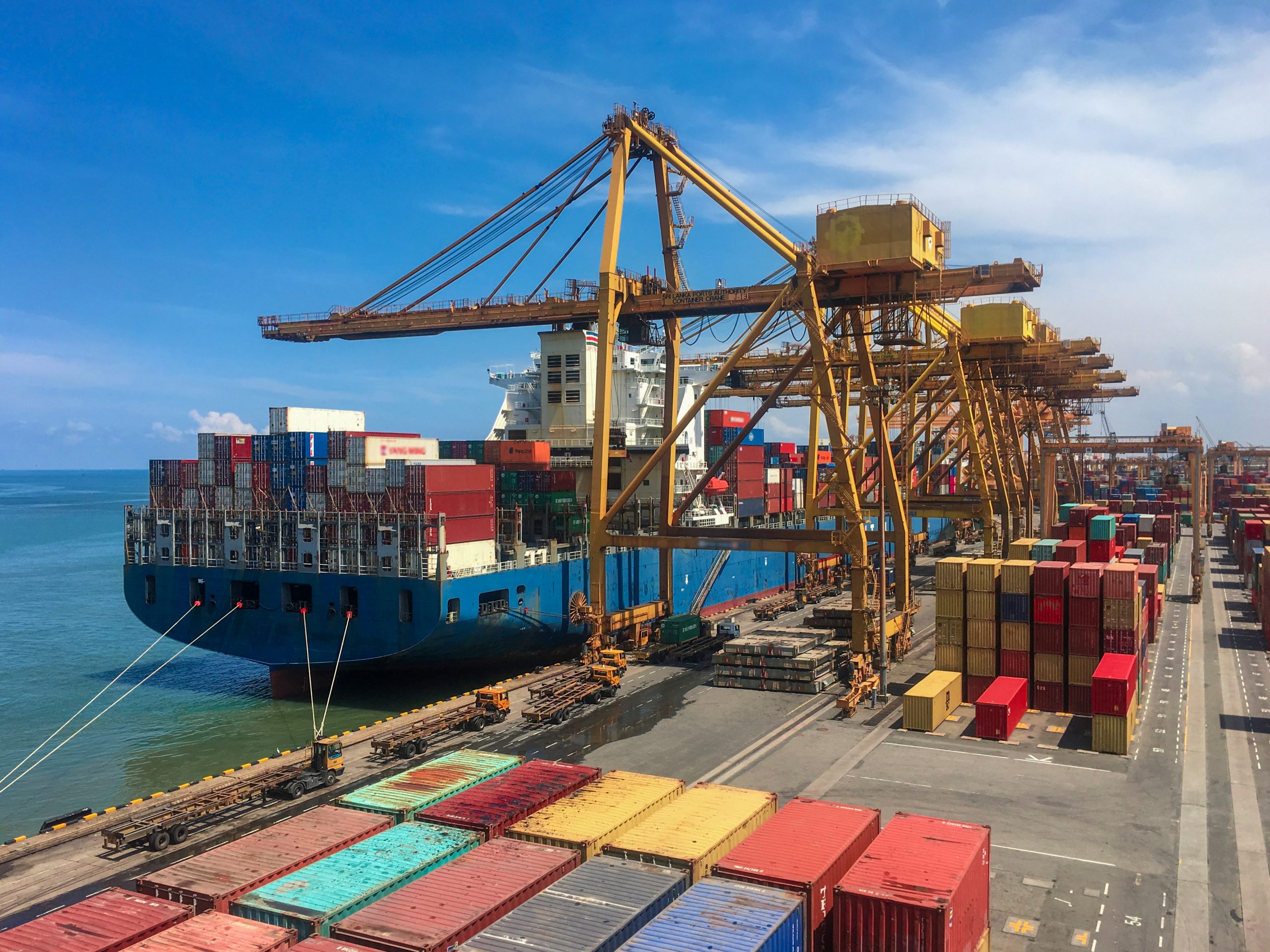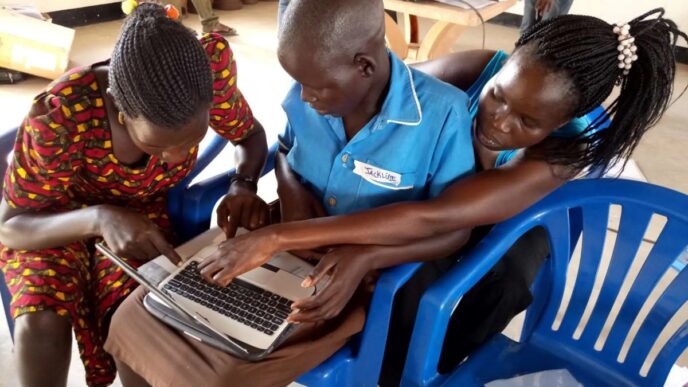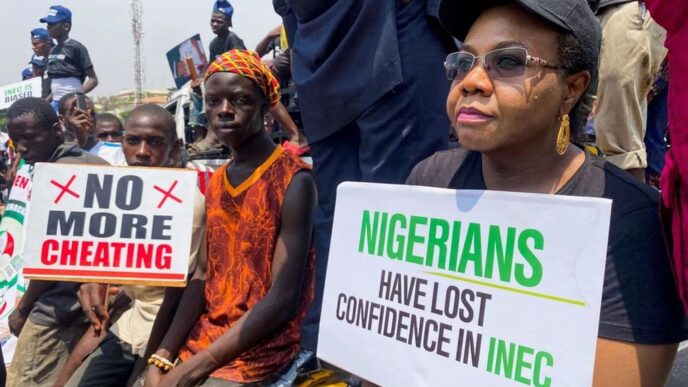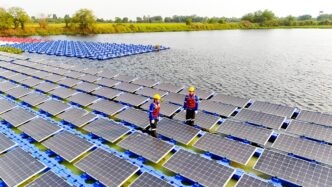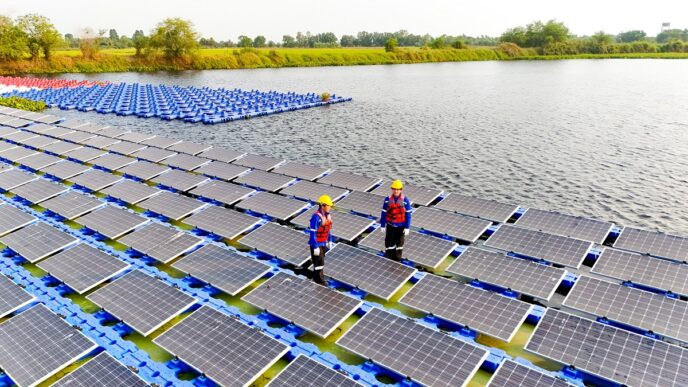Port of Lomé is drawing heightened interest from Washington and Moscow as both powers compete for influence in West Africa’s most strategically positioned gateway.
The port is increasingly becoming attractive to global powers, as Russia and the United States ramp up efforts to secure influence at Africa’s fourth-largest port.
With its unrivalled maritime access and proximity to landlocked markets like Mali, Niger, and Burkina Faso, the deep-water port, capable of handling over 30 million tonnes annually, is now the latest centre of international attraction.
The global powers are now showcasing their interest in the port and the country through infrastructure investments, cultural diplomacy, and military pacts. In recent weeks, the U.S. Embassy in Togo has stepped up its economic and diplomatic outreach.
U.S. Chargé d’Affaires Richard C. Michaels has been on a high-visibility tour that included visits to agricultural companies, particularly in the cashew sector, where he promoted sustainable trade and job creation that benefits both nations.
He also took part in the culturally symbolic Evala wrestling finals in Pya, a festival that doubled as a political and business convergence point in the Kara region.
There, he held closed-door talks with top Togolese officials and private sector leaders, underscoring America’s intent to deepen trade cooperation.
The clearest signal of U.S. interest, however, came during Michaels’ July 21 visit to the Port of Lomé and Lome Container Terminal, where he pitched American investment in logistics and infrastructure as a “win-win” for both economies.
“With advanced deep-water capabilities, cutting-edge equipment, and an annual throughput exceeding 30 million tons, Lomé offers U.S. businesses unmatched access to African markets,” said a statement from the U.S. Embassy in Togo.
“Ongoing expansion including a dry port and industrial zone further enhances its role as a growing gateway,” said the Embassy.
The embassy is actively inviting U.S. firms to explore tailored business opportunities, framing Lomé not just as a logistics hub but as a launchpad for American prosperity in Africa. While the U.S. leans on commercial diplomacy, Russia is embedding itself through hard security.
In June, Togolese and Russian defence officials signed a new bilateral military cooperation agreement, focusing on joint training, equipment supply, and emergency medical support.
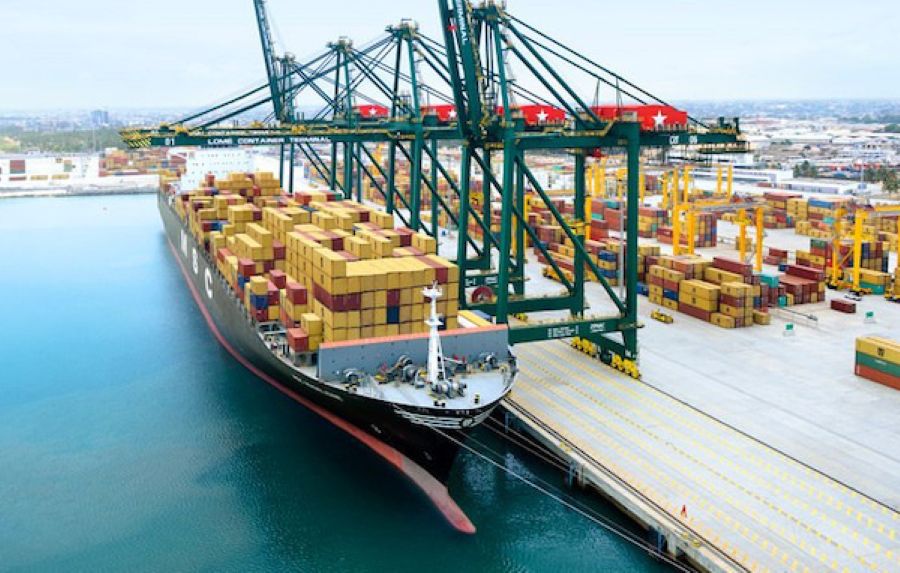
According to Russia’s state-run TASS news agency, Vladimir Gruzdev, chair of the Association of Lawyers of Russia, called Togo “the most organised and equipped country in Tropical Africa,” and described its port as the busiest in West Africa.
“The deal reflects Togo’s strategic value, not only in coastal logistics but also in inland security operations,” said Gruzdev.
Russia’s expanding role builds on its growing military footprint in the Sahel and Gulf of Guinea, as it seeks to displace traditional Western powers, particularly France, across Francophone Africa.
Lomé’s natural deep-water port is unmatched along the West African coast, offering direct berthing for large container ships and serving as a vital artery for landlocked West African neighbours, driving around 70% of Togo’s economic activity.
In 2024, the port handled 30.64 million tonnes of cargo, up from 30.09 million in 2023, according to Lloyd’s List Intelligence, with maritime trade contributing over 75% of the country’s tax revenue.
A Kenyan political economist, Jael Otondi, told the bird in an interview that African countries should treat such ‘geopolitical stunts’ with caution, especially at a time when Africa’s single largest market, AfCFTA, begins to reshape intra-African trade flows.
He argued that any ‘control over maritime gateways’ will dictate who shapes the next phase of Africa’s economic integration and who benefits most from it.
“Africa must take the driver’s seat. The global courtship over Lomé should not just be about access. It should be about partnership, ownership, and long-term value for African economies,” said Otondi.
Across the continent, ports like Berbera in Somaliland, Kenya’s port of Mombasa and Walvis Bay in Namibia have also been drawing interest from powers such as China, Turkey, the UAE, and India.
Credit: Conrad Onyango Bird Story Agency


 Trending
Trending 
